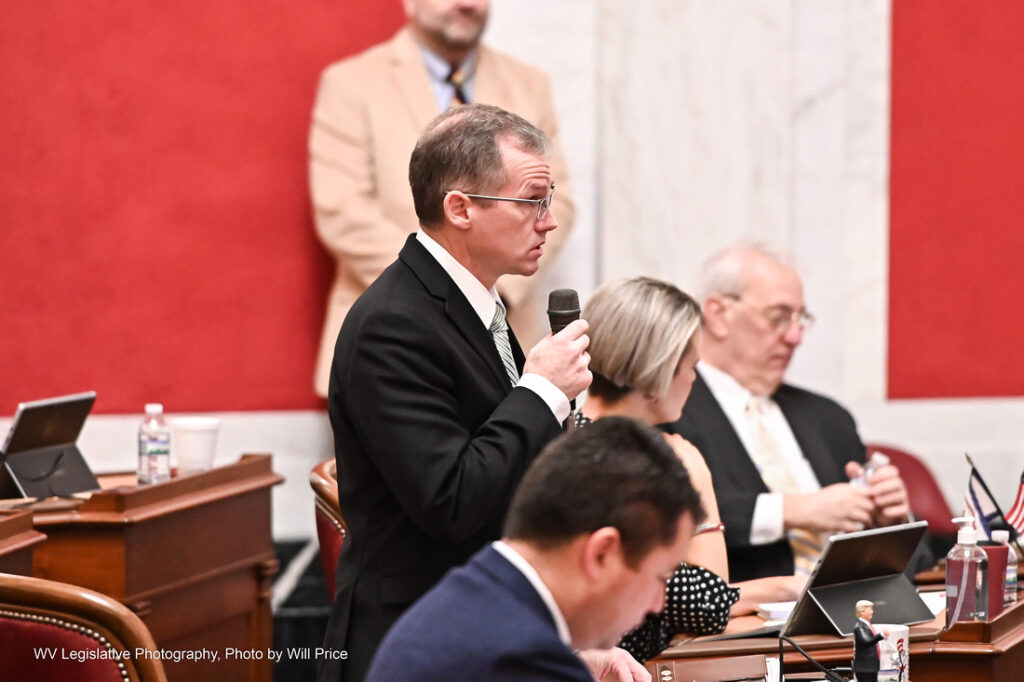The Senate Finance Committee wants to know how $10 million in CARES money ended up being donated by Gov. Jim Justice’s administration to Marshall University for its new baseball stadium.
The money was donated to the university from the governor’s Gifts, Grants and Donations Fund, and was transferred into that account days before the federal deadline to spend CARES funds.
Senate Finance Chair Sen. Eric Tarr, R-Putnam, questioned why a total of $28 million of CARES money was transferred to the gifts account in the first place, given the qualifying expense for the money was listed as the Division of Corrections and Rehabilitation.
“I understand that we still have National Guard in our corrections facilities and we have 1,000 FTEs [full-time employees] unfilled in our corrections facilities and we have a request for a $200 million deferred maintenance to go to corrections,” Tarr said.
“We’re under that state of emergency right now, and when you transfer the last $28 million, which doesn’t come close to covering any of those corrections expenses, the governor decides to put it into a discretionary account and then start putting AstroTurf on baseball fields. I want to ask you what part of that is appropriate,” Tarr said to Berkeley Bentley, general counsel to Justice.
Bentley told the committee that as special federal revenue, the money could only be transferred into a special revenue account.
“When the state reimburses itself, there is no direction under federal law or state law that directs where that money goes. It could not go into the governor’s civil contingent fund, rather it had to go to a special revenue account, and the most likely candidate was the gifts and grants fund,” Bentley replied.
“And ultimately a baseball field,” Tarr said.
Earlier this week, the Senate Finance Committee heard directly from the Division of Corrections and Rehabilitation about their $200 million deferred maintenance costs, including at least $27 million worth of locks that need to be replaced across the system.
Bentley told the committee that the transfer was made to officially spend the CARES money by the Sept. 30 deadline, and avoid returning the money to the federal government. Once the qualifying expense was paid, he said the state can use those funds for any legal purpose.
“We spent $1.25 billion. We did that, and we transferred it out. It’s no longer CARES, but the money is still available for any lawful purpose,” Bentley said. “The money was transferred over to pay the invoices we hadn’t received yet, not timely, what have you, but it’s also available for any other purpose that is legal under state law, no longer subject to the CARES Act requirements.”
Tarr also called on State Auditor JB McCuskey to discuss the process around the fund transfer. Under questioning from Tarr, McCuskey categorized the requested transfer of funds as “unusual.”
“We were working with cities and counties a lot to try to make sure that they were able to obligate their funds legally to ensure that the money that was given to us was spent on things that were legal,” McCuskey said. “Our office processes thousands of transfer requests a week probably … but this was a large number. And I was unfamiliar with the fund, but prior to that request, and you know, pretty obviously the name of it, it pops out pretty quickly.”
When asked why his office approved such a large and unusual transfer request, McCuskey said the governor’s office provided detailed opinions on the legitimacy of the transfer from global accounting firm BDO and the law firm Bailey Glasser.
“We can’t supplant our legal opinion of what their appropriations are if there’s a rational basis for them, and it was close,” McCuskey said. “We decided at the end of the day, it was better to make sure that effectuated what the governor’s office wanted, but to keep a record and an accounting of what happened and why.”
The meeting ended with the Senate Finance Committee agreeing to request more information on the COVID-19 money transfer from the Office of the Inspector General, as well as the Department of the Treasury.






















